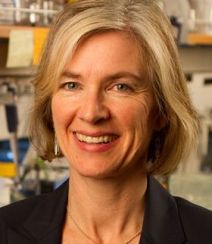UCB and UCSF launch revolution in genetic engineering

The University of California at Berkeley and the University of California at San Francisco said the Innovative Genomics Initiative (IGI) is based on a new technology already generating novel strategies for gene therapy and the genetic study of diseases.
At the core of the initiative is a revolutionary technology discovered at UC Berkeley two years ago by Jennifer Doudna, the current executive director of the new Innovative Genomics Initiative. The technology is called precision "DNA scissors," also known as CRISPR/Cas9.
Scientists refer the technology as the "holy grail" of genetic engineering. It is hailed as a "jaw-dropping" breakthrough in the fight against genetic disease.
The new genomic engineering technology significantly reduces the time it takes researchers to test new therapies. CRISPR/Cas 9 allows the creation of animal strains that mimic a human disease in weeks rather than years. This enables researchers to test new therapies much faster.
The technique also makes it quick and easy to knock out genes in human cells or in animals to determine their function, which will hasten the identification of new drug targets for diseases.
"The main goal of the initiative is to develop the CRISPR/Cas9 technology for applications in human health, and create a library of research resources that will make it available broadly," Doudna said.
"This is an exciting time in science right now, when the cost of sequencing a genome is going way down, to around $1,000 for a complete human genome sequence. Cas9 technology will take genomics to the next level, to enable editing of the genome."
In honor of her discovery and earlier work on RNA, Doudna last month received the Lurie Prize of the Foundation for the National Institutes of Health.
"The CRISPR/Cas9 technology is a complete game changer," said Jonathan Weissman, co-director of the initiative and professor of cellular and molecular pharmacology in the UCSF School of Medicine.
"With CRISPR, we can now turn genes off or on at will. I am particularly interested in using CRISPR to understand the normal functions of genes as well as how disease-causing mutations alter these functions."